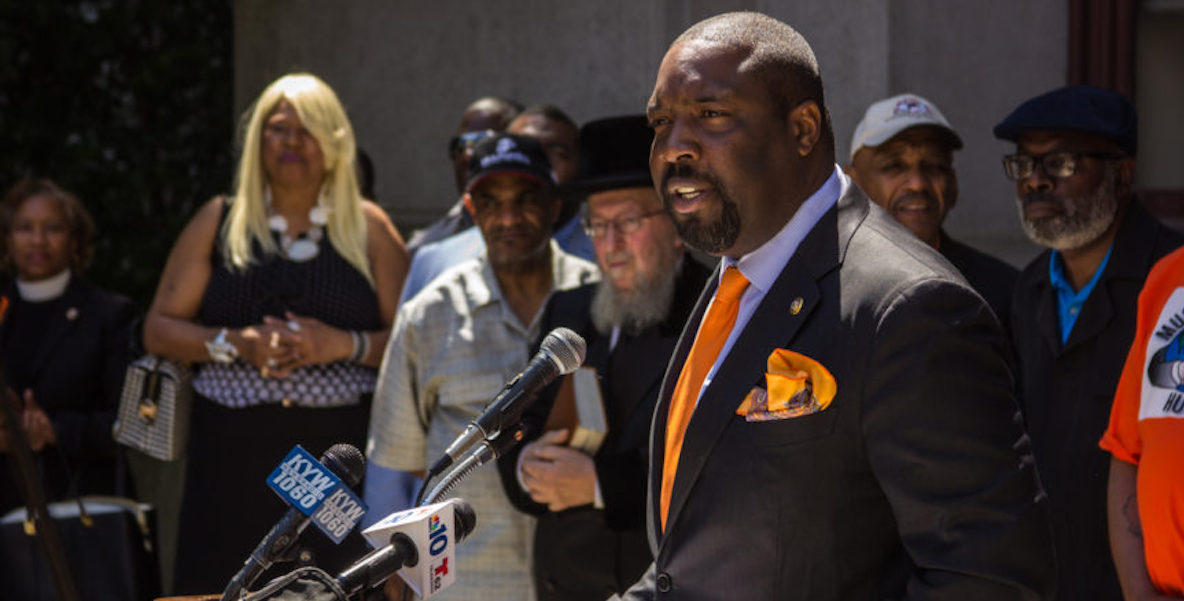Philadelphia is famously a small town masquerading as a big city, and in the world of government and politics, this has large benefits and large drawbacks.
![]() One of the benefits is that a superabundance of social capital means networks of personal relationships can sometimes make up for systems-level failures in governance and service delivery.
One of the benefits is that a superabundance of social capital means networks of personal relationships can sometimes make up for systems-level failures in governance and service delivery.
And one of the drawbacks, on the flipside of the same coin, is that the ability to muddle through on the strength of personal relationships saps too much political energy away from coming up with systems-level solutions to the systems-level failures.
The gaps in the system sometimes create business opportunities for people to step into the breach and essentially rent out their networks in government to paying clients.
Sometimes this takes the form of above-board corporate services like expediters, and sometimes there’s more of a freelance nature to what goes on, which is where you tend to see people getting in legal trouble over bribes and scams.
This is a useful frame for viewing last week’s news where Jeffrey Blackwell, a former employee of the Controller’s Office, and step-grandson of former Councilmember Jannie Blackwell, plead guilty to crimes related to bribes and kickbacks for things resembling freelance expediter services, some of which he never delivered on.
According to United States Attorney William M. McSwain, Jeffrey Blackwell, 47, of Philadelphia, pleaded guilty Wednesday to charges of honest services wire fraud, filing a false tax return, and two counts of failure to file a tax return.
Blackwell, a former City of Philadelphia employee in the Office of the City Controller, committed a series of frauds, accepting more than $20,000 in bribes and kickbacks, authorities said […]
At his plea hearing, he admitted that he solicited bribes from at least five individuals who were seeking permits or contracts from the city.
One of these individuals owned a furniture store and paid Blackwell for permits to park a storage container on the street. The second person was renovating a house and paid Blackwell for permits to allow that renovation. The third person owned a construction business and paid Blackwell to obtain a plumbing permit. The fourth person owned an auto body shop and paid Blackwell in the hope of getting a license to buy and sell cars as well as a city contract to install decals on police vehicles. The fifth person, who was cooperating with the FBI at the time, told Blackwell that he needed permits from the City of Philadelphia to renovate a house.
The commentary on these kinds of stories typically dwells on shaming officials’ willingness to engage in illegal behavior and what it says about Philadelphia’s culture, but without minimizing that aspect of it, it’s a bit of a dead end when it comes to thinking about the concrete things that concerned people in positions of power should actually try and do about it.
The main thing that nourishes the “I Know a Guy” system is the overcomplexity of getting really normal things from city government like, apparently, parking permits for a storage container, plumbing permits or home renovations—all things that should be pretty easy to do without the aid of a political fixer, but in practice is not always the case.
The place to target efforts, then, is in making these processes much more straightforward and administratively simple for people such that it would never even occur to anyone to track down guys with political connections for help.
What makes this so hard to change is that the existing ways of doing things create and reinforce their own political constituency. If personal connections to government staff are a valuable form of capital that many people will pay to rent, the people who have mastered the system—both inside and outside government—have little incentive to prioritize changes that devalue that capital by making things less relationship-based.
The good news is that things aren’t hopeless, and there’s been some important progress to make things better, even if there’s still a ways to go.
For instance, the City just rolled out a new Contracts Hub for the first time that makes it much easier for people to see what contracts are available using keyword searches, and submit bids. And the creation of the eClipse online permitting system has forced some departments to better spell out some of their requirements and processes more clearly, making project approvals less of a moving target.
The city has also been convening working groups on business process issues hosted by the Commerce Department to identify the pain points of operating a business within the law, which doesn’t appear to have quite borne fruit yet, but is a step in the right direction in terms of emphasis.
![]() Additionally, the pandemic has required city government to move more processes online and make changes to them to adapt to practical realities. Public health considerations have also temporarily deposed one of the worst ideas in local government—the neighbor petition for city permits—which, thankfully, nobody can be expected to carry out since it would be unsafe to have people go door to door for signatures for things like outdoor restaurant seating, the Playstreets program and more. As a result, we see more of those things happening.
Additionally, the pandemic has required city government to move more processes online and make changes to them to adapt to practical realities. Public health considerations have also temporarily deposed one of the worst ideas in local government—the neighbor petition for city permits—which, thankfully, nobody can be expected to carry out since it would be unsafe to have people go door to door for signatures for things like outdoor restaurant seating, the Playstreets program and more. As a result, we see more of those things happening.
The pandemic has really thrown into sharp relief many of the ways where local governance is faltering at a systems level, but also has resulted in big, fast changes to processes that previously seemed like they could never be changed.
With any luck, our elected leaders will take some of these lessons to heart and make a priority of fixing them as the city digs out of the Covid-19 mess in the coming years.
Jon Geeting is the director of engagement at Philadelphia 3.0, a political action committee that supports efforts to reform and modernize City Hall. This is part of a series of articles running on both The Citizen and 3.0’s blog.
The Fix is made possible through a grant from the Thomas Skelton Harrison Foundation. The Harrison Foundation does not exercise editorial control or approval over the content of any material published by The Philadelphia Citizen.
Photo by Charles Deluvio / Unsplash











